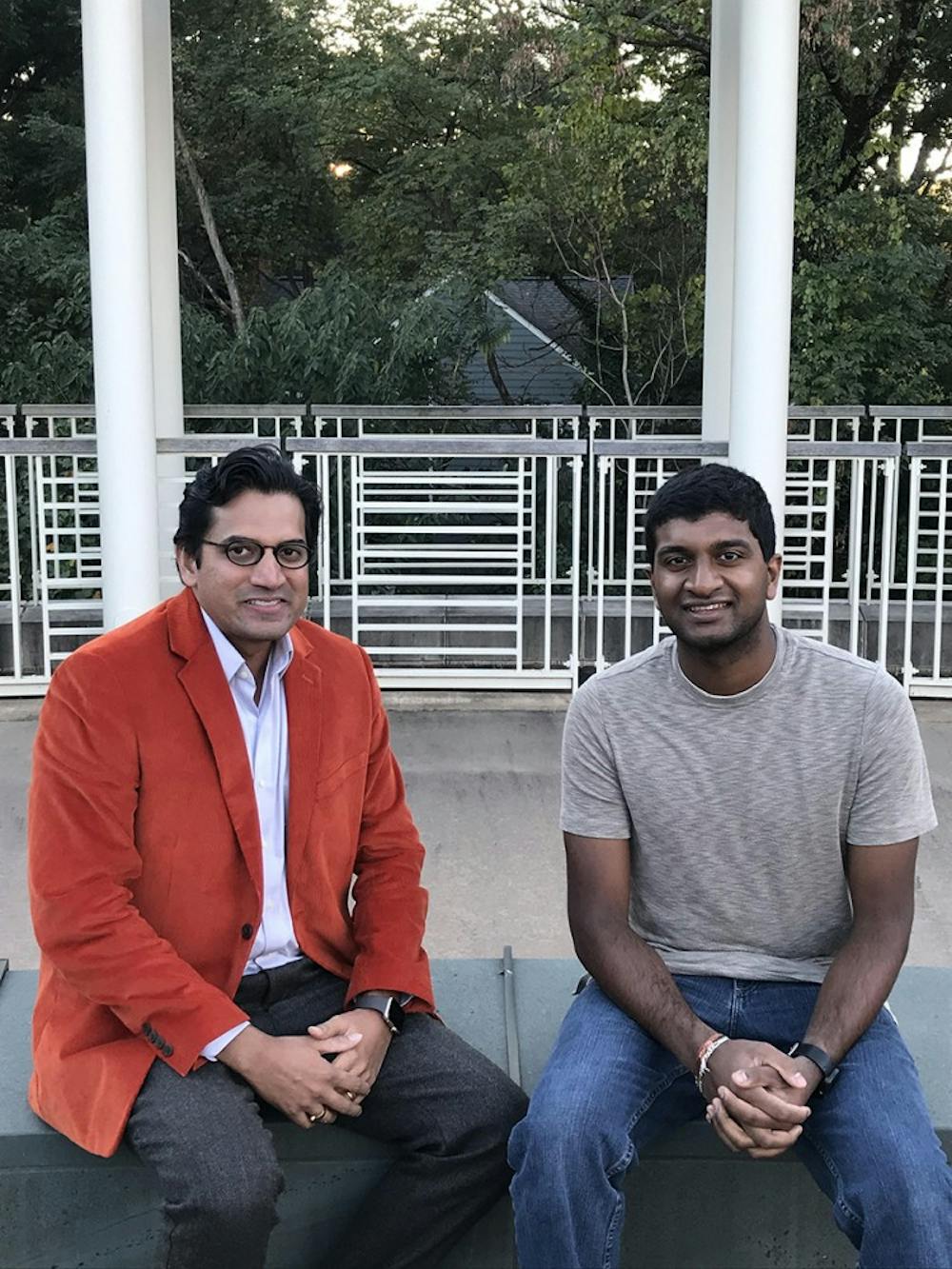The Collegiate Inventors Competition gives college students the opportunity to present their inventions to be judged on the basis of degree of originality, development level of the product, potential benefit to society and level of student initiative. A team from the University, headed by fourth-year Engineering student Ashwinraj Karthikeyan and sponsored by Bala Mulloth, assistant professor of public policy, placed in the finals of the competition with an innovative product called “Phoenix-Aid.”
Karthikeyan began working on the project after taking Mulloth’s “Innovation and Social Impact” course in spring of 2016. He maintained contact with Mulloth over the summer and then asked Mulloth to be his faculty advisor in order to apply for grants. As a faculty advisor, Mulloth said he helped Karthikeyan by going over his business plan with him and providing him connections facilitate the growth of his project.
“I believe [Karthikeyan]’s going to have a really life-changing technology — it’s rare to see students who are actually developing a product as opposed to a service, so he’s not building an iPhone app or just another software,” Mulloth said. “He’s actually building something which is patentable — in fact, he’s patenting it right now — so I like the fact that it’s a real product-based innovation rather than a service-based innovation.”
Karthikeyan founded the company InMEDBio to address the need for better wound care technology. Also, he said he is focused on growing issues in the modern world, such as chronic wound issues associated with diabetes and prevent site infection. To work towards this goal, Karthikeyan and a team of fellow undergraduate students developed Phoenix-Aid.
Phoenix-Aid is a multi-layer wound dressing system that addresses what he and his team calls “the three ABCs of chronic wound healing” — “A” stands for accelerated healing, “B” for blocking pathogens and “C” for comforting the wound. Karthikeyan said that the system not only has implications for wound healing and infection prevention, but also that it serves as a cost-effective, more efficient replacement for gauze.
“I actually started this because someone I knew passed away from a surgical site infection,” Karthikeyan said. “They had gotten the surgery, and the surgical procedure was actually fine … But she didn’t know that she had an infection on the surgery wound. Because of that, it sort of got worse, and eventually, she passed away from it.”
The Collegiate Inventors Competition is one of many competitions the team has entered. So far, they’ve won $120,000 in grants and are currently in the process of obtaining a patent for Phoenix-Aid.
Anthony Scharf, program relations coordinator for the National Inventors Hall of Fame, in an email statement spoke about the Collegiate Inventors Competition and the implications of winning.
“The Collegiate Inventors Competition was founded in 1990 to encourage and drives innovation and entrepreneurship at the collegiate level,” Scharf said. “The Competition brings together the nation’s brightest college minds to showcase, recognize and award their cutting-edge research and discovery.”
Placing as one of the 12 finalists in the Collegiate Inventors Competition not only provides teams the opportunity to interact with experts in their respective fields and gain feedback, but also substantiates the importance of finding an alternative solution to wound care. After graduating, Karthikeyan plans to go full-time with the project.
“Winning a competition like this validates the need for a solution,” Mulloth said. “It’ll de-risk investors when they talk to [Karthikeyan] because they’ll see he’s proven his mettle, not just through grants and research but also actually winning competitions … But most importantly, he’s really getting the word out on a national level.”







